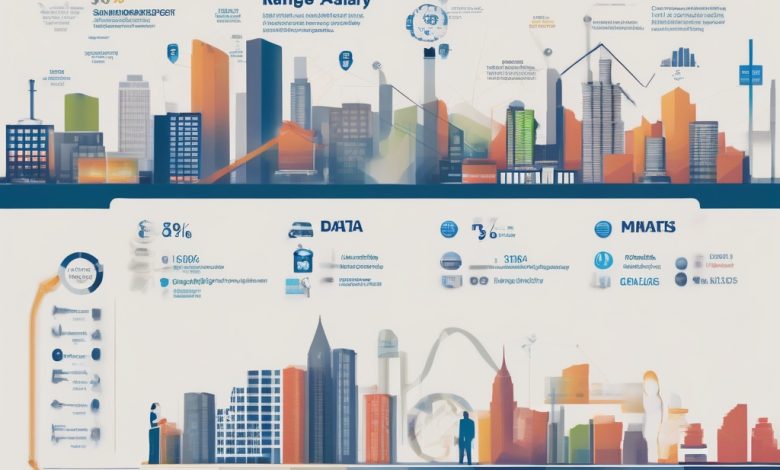How Much Do Data Analysts Make

Wondering How Much Do Data Analysts Make? Explore salary ranges for data analysts based on experience, location, and industry, and learn what factors impact their earnings.
Unlocking Potential: The Earning Power of Data Analysts in Today’s Economy
In an era defined by the digital revolution, the role of data analysts has emerged as a beacon of opportunity. As businesses increasingly rely on data-driven decision-making, the demand for skilled data analysts is soaring. This article explores the financial rewards that come with this profession, unveiling the potential earnings that can be unlocked in today’s economy.
The earning potential of data analysts varies widely based on several factors, including experience, education, industry, and geographical location. Understanding this spectrum is crucial for aspiring analysts looking to navigate their career paths effectively.
| Experience Level | Average Salary (USD) |
|---|---|
| Entry-Level (0-2 years) | $60,000 – $75,000 |
| Mid-Level (3-5 years) | $75,000 – $100,000 |
| Senior-Level (5+ years) | $100,000 – $130,000 |
| Lead/Data Science Roles | $130,000 – $160,000+ |
As evident from the table, even entry-level positions offer competitive salaries, motivating many individuals to embark on this rewarding career.
The industry in which a data analyst works significantly influences earning potential. Certain sectors, such as finance, healthcare, and technology, tend to offer higher salaries due to the complexity and importance of data in those fields. Here’s a brief overview of average salaries by industry:
- Finance: $80,000 – $120,000
- Healthcare: $70,000 – $110,000
- Technology: $75,000 – $130,000
- Retail: $60,000 – $100,000
- Government: $55,000 – $85,000
This diversity in salaries across industries illustrates that aligning your career path with lucrative sectors can significantly impact your earning potential.
Beyond Numbers: How Experience and Skills Elevate Data Analyst Salaries
As the job market evolves, the factors that determine salaries for data analysts are not solely tied to numbers. Beyond the foundational pay scales, the depth of experience and the breadth of skills play a crucial role in enriching a data analyst’s compensation package. Understanding these dimensions can empower aspiring data professionals to elevate their earning potential significantly.
Experience is often regarded as a currency in the professional realm, and for data analysts, this holds especially true. As analysts progress through their careers, the insights and methodologies they acquire lead to more sophisticated analysis and impactful results. A seasoned data analyst is typically equipped to tackle complex data sets, derive actionable insights, and communicate findings to stakeholders effectively. This expertise not only justifies higher salaries but also opens doors to leadership roles where compensation can soar. For instance, the transition from an entry-level position to a senior role could see a salary increase of over 30%, reflecting the invaluable experience gained.
In addition to experience, the specific skill set of a data analyst can dramatically influence their salary trajectory. Proficiency in advanced analytical tools such as Python, R, SQL, and machine learning algorithms can set an analyst apart from their peers. Companies are increasingly searching for analysts who can not only interpret data but also utilize predictive modeling and data visualization techniques. These high-demand skills often command premium salaries. For instance, analysts adept in machine learning can see their earnings increase by 20% or more compared to their counterparts with basic analytical skills. Moreover, soft skills like communication, problem-solving, and critical thinking also play a pivotal role in salary negotiations, as they enhance the analyst’s ability to collaborate effectively with cross-functional teams.
| Skill | Average Salary Impact |
|---|---|
| Machine Learning | +20% |
| Data Visualization (Tableau, Power BI) | +15% |
| SQL Proficiency | +10% |
| Statistical Analysis | +10% |
In conclusion, while the base salary for data analysts is a solid foundation, it is the combination of experience and skills that truly propels their earning potential to impressive heights. Aspiring analysts should focus on continuous learning and skill enhancement to navigate this lucrative landscape effectively.
The Road to Success: Navigating Salary Trends and Opportunities in Data Analysis
In the ever-evolving landscape of data analytics, understanding salary trends is not just about numbers; it’s about unlocking the potential of a vibrant career. As the demand for data analysts continues to surge across industries, professionals in this field find themselves at a crossroads of opportunity and growth. Grasping the intricacies of salary dynamics can illuminate the path to a prosperous future in data analysis.
Recognizing the Impact of Location and Industry
The geographical location and the industry sector play pivotal roles in shaping the salary landscape for data analysts. In major metropolitan areas, where the tech landscape flourishes, salaries can be significantly higher due to the cost of living and demand for talent. For instance, analysts in Silicon Valley or New York City often enjoy salaries that surpass the national average, reflecting the competitive nature of these markets. Additionally, industries such as finance and healthcare not only offer higher compensation but also provide unique opportunities for analysts to apply their skills in impactful ways. The intersection of location and industry creates a rich tapestry of opportunities that aspiring data analysts should navigate carefully.
Seizing Opportunities for Continuous Growth
Success in data analysis is not merely about landing a job but about embracing a journey of continuous learning and professional development. As the field expands, the emergence of new tools and technologies opens doors for analysts to enhance their skill sets. Those who proactively seek certifications in advanced analytics, machine learning, and data visualization often find themselves in a favorable position when it comes to salary negotiations. Furthermore, networking within the industry can unveil hidden opportunities, allowing analysts to connect with mentors who can provide invaluable insights into salary trends and career advancement strategies. By positioning themselves as lifelong learners and proactive networkers, data analysts can significantly elevate their earning potential.
The Future Awaits: Embracing Change and Innovation
The data landscape is characterized by rapid change and innovation, and those who adapt will thrive. As businesses increasingly turn to data to drive decision-making, the need for versatile analysts who can navigate complexities will only grow. Emerging technologies such as artificial intelligence and big data analytics are reshaping the roles of data analysts, creating a demand for professionals who can leverage these advancements. By staying ahead of industry trends and continuously refining their skills, data analysts can not only secure higher salaries but also position themselves as leaders in this transformative field. The journey ahead is not just about understanding how much data analysts make; it’s about recognizing that the potential for growth is limitless. Those who embrace this mindset will undoubtedly find themselves rewarded in ways that extend beyond mere numbers.






